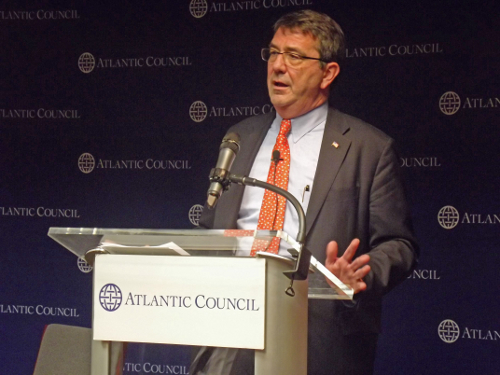
Last week, Deputy Secretary of Defense Ash Carter told an audience at the Atlantic Council that building partnership capacity or security force assistance will remain an important component of US defense policy. The talk was grounded in the 2012 strategic defense guidance that notes “building partnership capacity…remains important for sharing the costs and responsibilities of global leadership. Across the globe, the United States will seek to be the security partner of choice, pursuing new partnerships with a growing number of nations.”
The importance of working with, by, and through partners bears itself out in counterinsurgency, where external forces can only enable indigenous forces to bring stability. In Afghanistan, for example, transition is not going to be based on peace with the Taliban or a cessation of violence. Rather, transition for lead security responsibility from NATO will be based on a professional and competent Afghan Army, Air Force, and Police that support a legitimate, sovereign government. To be sure, the Afghan force is not ready or independent today; if it were, there would not be over 100,000 NATO troops there. But this is not the case of Afghans unwilling to serve and fight for their country. While a source of consternation for some, NATO deliberately prioritized Afghan manpower over an independent combat capable force.
Outside of contemporary conflict, defense strategy emphasizes that building partnership capacity supports a core tenant of US foreign policy–strengthening the Westphalian system. By working with nearly every government in the world, United States-provided military training and defense equipment help governments control their airspace, monitor their maritime zones, and reduce the impact of sub-national and transnational threats. While a gang like MS-13 can be addressed by the Los Angeles Police Department as a criminal matter; the government of El Salvador treats the same gang as a national security threat requiring external assistance. While the Federal Aviation Administration can monitor US airspace and the Air National Guard can interdict suspicious flights, Colombia cannot without US equipment and expertise.Through building partnership capacity, US partners gain obvious benefits through security assistance. These include access to the US defense base, opportunities to attend US professional military education institutions, and the ability to serve in US-led military commands. The US does assume some risk by maintaining a non-exclusive list of partners. Yet, the benefits are not one-sided. Partners provide access to forward bases as logistics hubs, the basis for future military coalitions, and even billions in host-nation support. The latter may increase in importance as the defense budget declines and forces draw down from Europe, the Middle East, and Asia.
Coordinated by an embassy country team, activities like these are often implemented by the military, but the role of the military in supporting roles is controversial. The School of International Service at American University recently hosted a conference that explored these issues. Speakers discussed how US foreign policy increasingly has a military face. Fears of militarization are based inasmuch on historic missteps as contemporary bureaucratic friction; yet it was recognized that exporting security is done by presidential direction with Congressional oversight.
The lines among defense, development, and diplomacy are often blurred, but there was a sense that supporting partners will be a continuing feature of US foreign policy and these activities can be done well when an ambassador exercises his or her Chief of Mission authority.
Derek S. Reveron, an Atlantic Council contributing editor, is a Professor of National Security Affairs and the EMC Informationist Chair at the U.S. Naval War College in Newport, Rhode Island.
Image: Ash%20Carter.jpg
